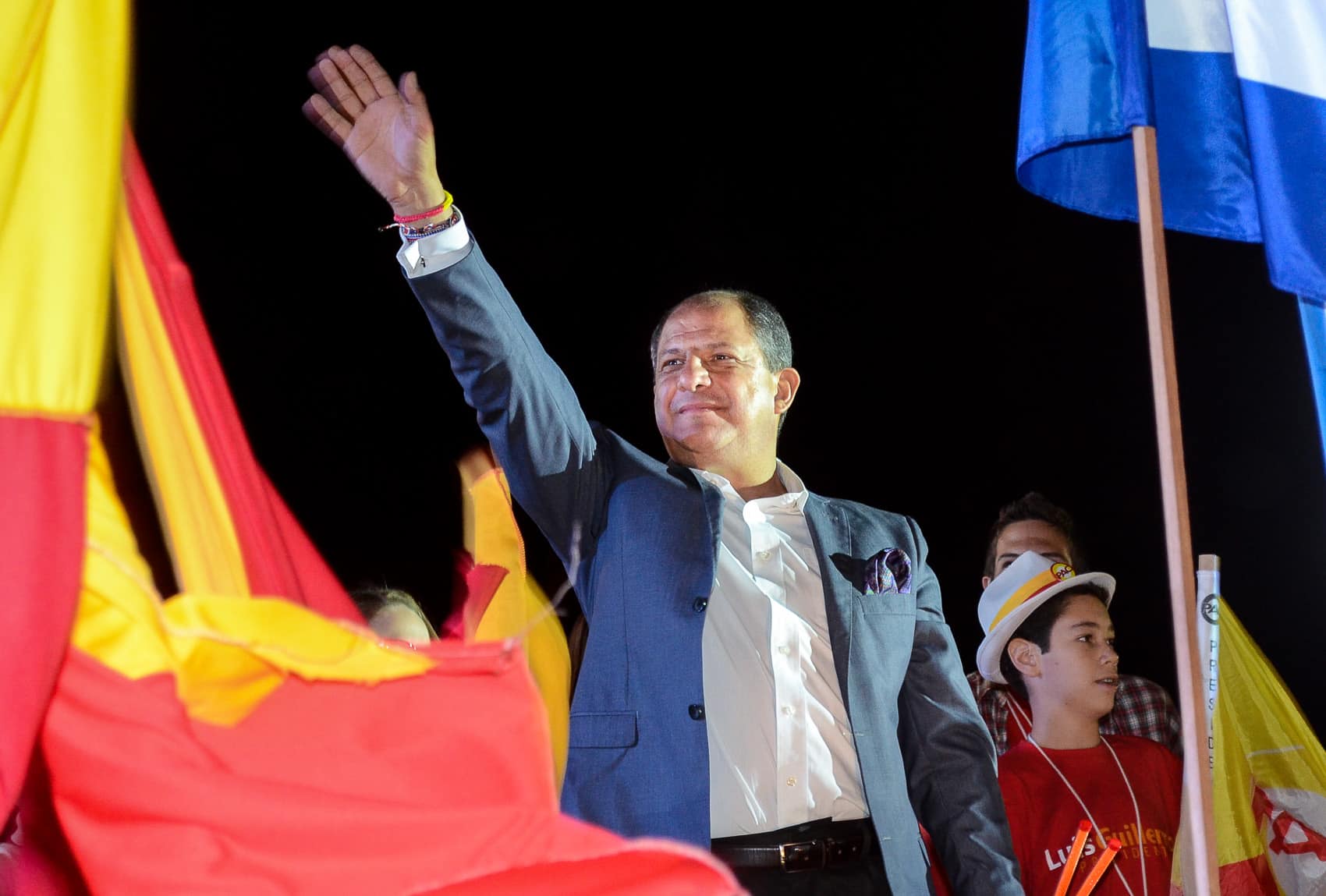Opposition candidate and former professor Luis Guillermo Solís easily won Sunday’s runoff election, ushering in Costa Rica’s first third-party candidate in 44 years.
Rallying at Plaza Roosevelt in San Pedro, east of San José, Solís of the Citizen Action Party (PAC) and red-and-yellow clad supporters cheered the results as the Supreme Elections Tribunal (TSE) announced him the winner in a landslide with 77.8 percent of the votes to National Liberation Party (PLN) candidate Johnny Araya’s 22.1 percent, with 96 percent of the votes counted Sunday night.
“More than one million Costa Ricans said ‘yes’ to change” today, the president-elect told an exuberant crowd of supporters. “No longer will corruption live in our country.”
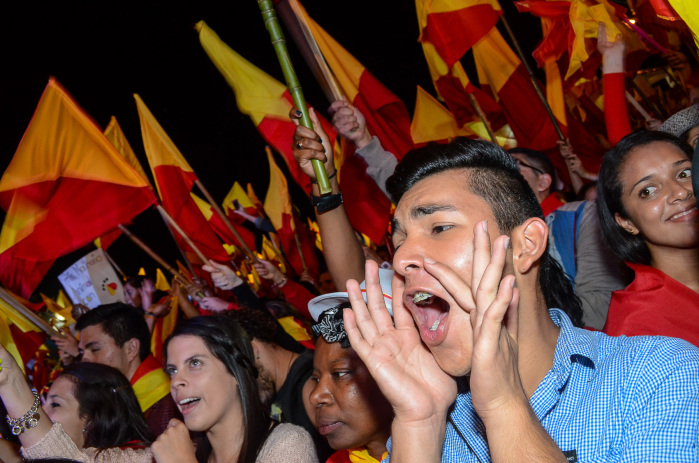
Araya quickly conceded the race after the TSE released its initial count just after 8 p.m. showing Solís with more than 77 percent, with over 70 percent of the votes counted.
“After hearing the results of more than 77 percent of the polling centers, we must congratulate the president-elect of Costa Rica, Luis Guillermo Solís,” Araya said. “With humility we must recognize Costa Rican people’s clear and forceful will.”
Arguably, Araya had already conceded the race in March when he surprised his party followers by announcing he would stop campaigning after a disappointing showing in a University of Costa Rica poll and dwindling campaign funds. Araya, 56 and a former mayor of San José, left Solís unencumbered to clinch Sunday’s vote.
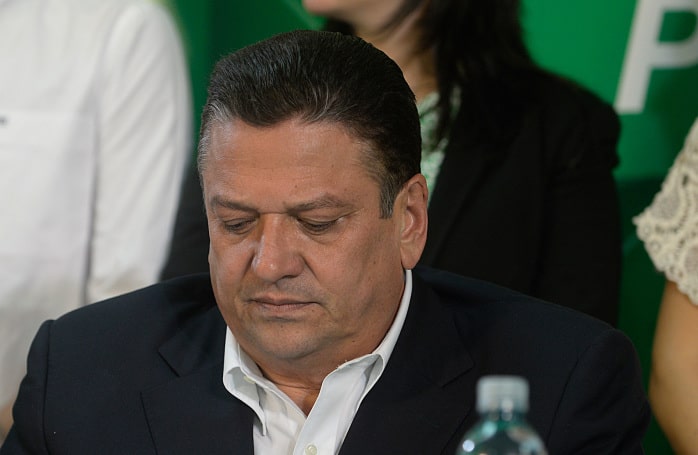
Solís stressed that voter abstention would be his greatest challenge after Araya left the field, leading some analysts to wonder if low turnout would weaken his popular mandate. However, Solís exceeded his goal of 1 million votes, garnering just under 1.3 million – the most votes ever captured by a Costa Rican presidential candidate, according to Teletica. (Araya’s was the worst vote tally in PLN history.) Predictably, voter abstention remained higher than in the first round, at just over 43 percent compared to 31.8 percent on Feb. 2, according to the TSE. Still, at last count, Solís had managed to capture more votes than the number of voters who abstained, which also was just under 1.3 million.
“I’m overwhelmed with pride, confidence and [a sense of] security for the country,” PAC supporter Sylbell Bedoya, 58, told The Tico Times at Sunday night’s post-election rally. “[Solís] has brought back confidence to the country, to the Costa Rican people.”
Several PAC supporters waved brooms with red and yellow flags attached, signifying a sweep. Solís beat Araya in all seven Costa Rican provinces, and he even won in the former San José mayor’s own home town of Palmares by a margin of more than two to one.
“It’s a broom to sweep away pericos!” Feliz Salas, a 65-year-old teachers representative, told The Tico Times, referring to the small green birds associated with the ruling PLN.
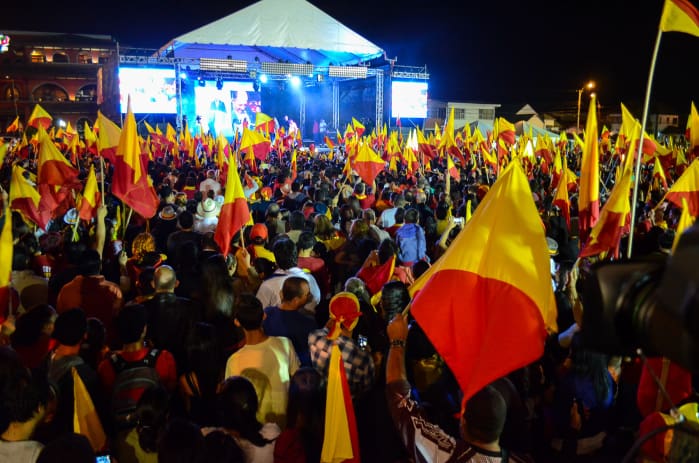
Compared to the festive atmosphere at Plaza Roosevelt, PLN headquarters – known as the Balcón Verde – in western San José was subdued, stinging from the trouncing at the polls. A group of Liberación youth dressed in green tried to liven the atmosphere by playing a live rendition of the party’s anthem, while an emotional Araya clapped along. But he looked as if he’d rather have been elsewhere.
Liberacionistas sing "Viva Pepe" the party's theme song following massive defeat @TheTicoTimes pic.twitter.com/KDjMKfHhVa
— Lindsay Fendt (@LEFendt) April 7, 2014
“Most of us in the PLN were clear we weren’t going to win this election, but the difference [in votes] was much bigger than we thought,” Araya supporter Roberto Castro told The Tico Times at Liberation headquarters. “I think the people’s will was clear: They do not want a third National Liberation Party administration.”
President-elect Solís and his campaign managed to displace Costa Rica’s oldest and most established political party, which won the presidency the last two consecutive terms.
President Laura Chinchilla, whose troubled administration and ongoing scandals helped lay the groundwork for the PAC victory, called Solís to congratulate him. She also thanked Costa Ricans for another peaceful election unmarred by violence.
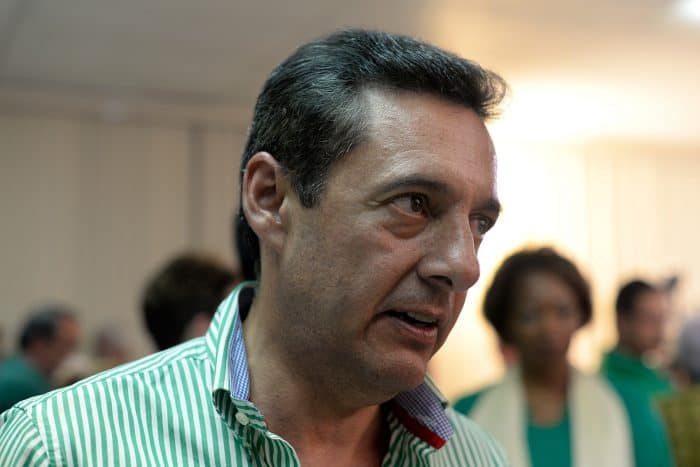
Throughout the day and late into the night Costa Ricans stayed connected on social media. One Twitter user, @Denisblabla, summed up the historic day in less than 140 characters: “Acá unas crayolas cambian un gobierno; no las armas” – “Here a few voting crayons can change the government; not weapons.”
https://twitter.com/denisblabla/status/453029753642307584
Organization of American States Secretary General José Miguel Insulza recognized Solís’ victory and noted that voting was “absolutely tranquil.”
Solís, a political scientist and historian at the UCR, surprised pollsters, who had him in fourth place ahead of the Feb. 2 first round of voting. He ended up taking first place, coming in with 30.6 percent of the vote, just slightly better than Araya’s 29.7 percent. But it was not enough to exceed the 40 percent plus one required to avoid a runoff.
The PAC candidate has never held elected political office but is no stranger to the halls of power, working in several PLN administrations and serving as ambassador to Panama during the administration of José María Figueres (1994-1998), before leaving the party for the PAC in 2009 2005.
Solís, the son of a cobbler and father of six, traces his roots back to his Jamaican-Chinese grandparents who worked banana plantations in the Caribbean province of Limón in the early 19th century. The candidate’s family history and humble demeanor resonated with voters fed up with perceived corruption, stagnant poverty and rising inequality in Central America’s oldest democracy.
“My political strategy is aimed towards those who think professional politicians are no good,” Solís told The Tico Times last November.
That strategy succeeded.
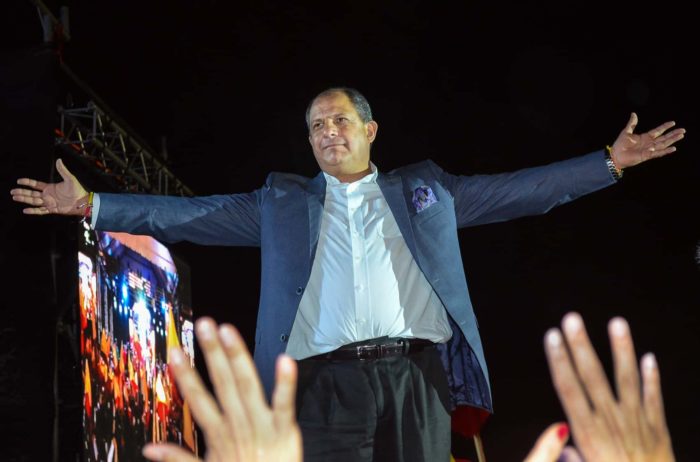
The Tico Times’ L. Arias and Lindsay Fendt contributed to this report.
Who is Luis Guillermo Solís? Read our full interview with him last November, and follow all of our election coverage at the hashtag #Elections 2014. Stay tuned for more analysis on Costa Rica’s historic 2014 presidential election.

